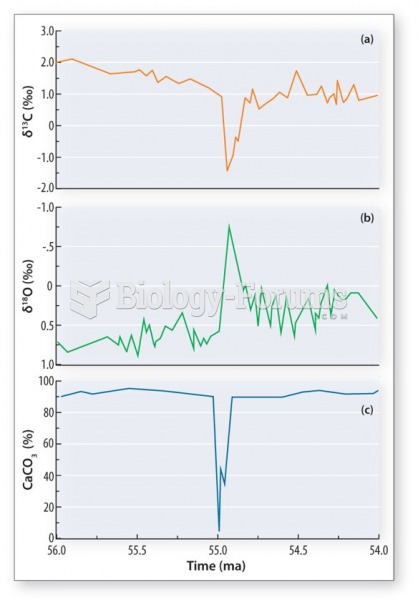This topic contains a solution. Click here to go to the answer
|
|
|
Did you know?
Sperm cells are so tiny that 400 to 500 million (400,000,000–500,000,000) of them fit onto 1 tsp.
Did you know?
In 1835 it was discovered that a disease of silkworms known as muscardine could be transferred from one silkworm to another, and was caused by a fungus.
Did you know?
About 3.2 billion people, nearly half the world population, are at risk for malaria. In 2015, there are about 214 million malaria cases and an estimated 438,000 malaria deaths.
Did you know?
Illness; diuretics; laxative abuse; hot weather; exercise; sweating; caffeine; alcoholic beverages; starvation diets; inadequate carbohydrate consumption; and diets high in protein, salt, or fiber can cause people to become dehydrated.
Did you know?
The first oral chemotherapy drug for colon cancer was approved by FDA in 2001.
 Calcium channels and muscle contraction: (a) Calcium channels open as the action potential travels ...
Calcium channels and muscle contraction: (a) Calcium channels open as the action potential travels ...
 Synaptic transmission. (a) Action potential reaches synapse; (b) neurotransmitter released synaptic ...
Synaptic transmission. (a) Action potential reaches synapse; (b) neurotransmitter released synaptic ...





